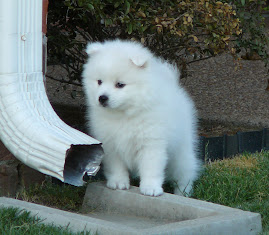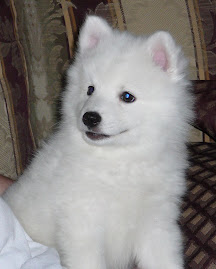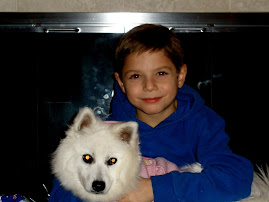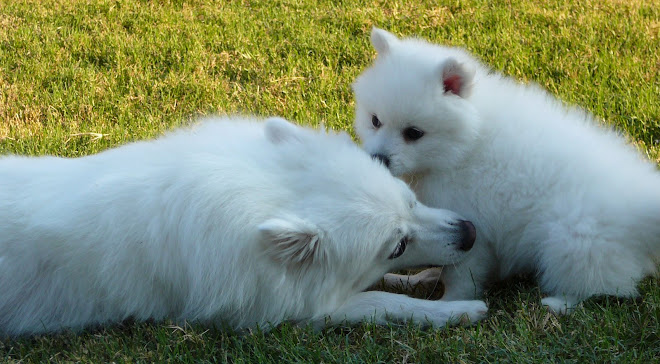If you have watched television anytime in the past 48 months, you've probably seen a story or report on Obesity in America. Yes, it's true. The epidemic is spreading and we Americans seem to be at our fattest yet. But did you know that a large majority of American dogs are also a part of this epidemic? The modern dog has access to the best nutrition and health services in history. Nevertheless, the count of overweight dogs is on the rise.
Dogs have to rely on their humans to provide them with the best and most nutritional choices possible. Let's face it, if you give a dog the choice between a cheese burger and a nutritional kibble, he'll choose the the cheese burger every time. Of course, if you give a human the choice between a cheese burger and a carrot stick, most would probably choose the cheeseburger, as well.
The problem, it seems, is a lack of knowledge on the subject of nutrition, and how the lack of it can adversely affect your dog's (and your) body. Did you know that overweight dogs are at a greater risk of injury and complications during surgery? Their heart, liver, lungs, kidneys, and joints are more stressed. Obesity in dogs can cause heart attacks, strokes, respiratory problems (especially in extreme heat and during exercise), and diabetes. Overall, a dog's life is not only shortened, but his quality of life is greatly decreased.
How To Determine if Your Adult Japanese Spitz is Overweight or Obese
It is best to ask your vet to help you determine the ideal weight for your Japanese Spitz. However, the old standby is this: Can you feel your dog's ribs? If so, then then your dog is fit. However, the ribs should not protrude, as this could be a sign of malnourishment or disease. Now, if you're still not sure whether your dog is overweight, ask yourself this:
Does my dog have no waist?
Does my dog have a rounded stomach?
Does my dog have a thick fat covering the ribs that is soft and movable?
Does my dog have prominent folds of skin that sway when he walks?
If you answered "Yes" to any of these questions, your dog is most likely overweight.
How Did Your Japanese Spitz Get This Way?
There are many things that can cause a dog to be overweight. Obesity is how the body responds to too much energy saved as fat. Obesity in dogs is affected by the correlation between genetic factors, exercise, food management, and stress. Dogster.com breaks it down for us like this.
Obesity is affected by:
Food - Leaving a bowl of food out for your dog all the time is a sure path to obesity. So is giving your dog a caloric treat every time he asks for it.
Activity Level - Our society has moved away from plowing fields to plowing through the potato chips while sitting on the sofa. If we do exercise, it is at the gym. And too often, the daily mile dog walk turns into a quick run around the block just so Fido can do his business.
Illness - Certain conditions exacerbate canine obesity, such as hypothyroidism, Cushings Disease, Pancreatic Cancer, and pituitary problems.
Reproductive: Feeding a neutered or spayed dog an average amount can cause obesity. They need about 1/4 less than average.
Breed - Some breeds are more likely to become overweight or obese. These include Labrador Retrievers, Beagles, Cocker Spaniels, and Basset Hounds.
How Can I Help My Japanese Spitz Loose Weight?
Dogster offers the following suggestions for helping your dog shed those pounds. However, BEFORE ANY CHANGES IN DIET OR LIFESTYLE, CONSULT WITH YOUR VETERINARIAN.
FOOD:
Feed your dog two - three times per day. Ask you vet for advice on the amount, but in general, a dog needs 35 calories per pound per day to stay at her ideal weight. Avoid weight management foods, as they tend to be high in carbs and low in protein. Remember that treat calories are included in the daily calorie intake. Try small pieces of microwaved chicken, carrots, celery, a dab of peanut butter, or a small piece of low-fat cheese.
ACTIVITY LEVEL:
On average, a dog needs 30 minutes - 1 hour of exercise per day. This doesn't mean you have to run five miles with him. In addition to walks, dog parks provide good exercise, as does throwing a ball in the back yard. Remember to start slowly and build up gradually.
Here, I would like to interject and stress the importance of discussing an increase in activity level with your vet before you make the change, especially if you have and older or elderly dog. The last thing you want to do is cause more harm than good, as older dogs have greater stress in their joints, arthritis, and more brittle bones.
HEALTH:
Your vet can determine if an illness is causing or contributing to your dog's obesity. He can also prescribe a medication that suppresses a dog's appetite and blocks fat absorption, if appropriate.
The Good News
Canine Obesity can be treated and it doesn't have to be a death sentence for your beloved companion. Please remember, that treatment should be done slowly and under the supervision of your veterinarian. It is not safe for your dog should to shed more than 1 to 1-1/2 pounds per week.

***Please note that all of the above apply ONLY to adult dogs.***












